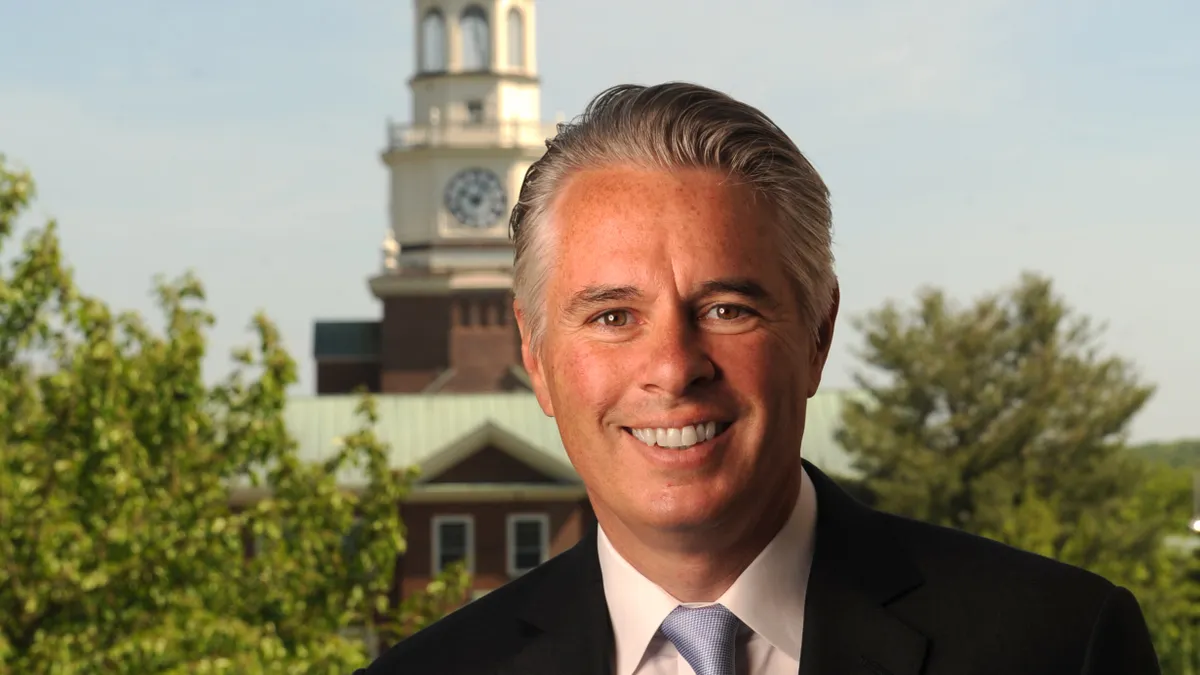David Greene didn’t waste any time. He became president of Colby College July 1, 2014, and just six months later celebrated a 47% overall increase in applications for this year’s freshman class. Those numbers included a 70% boost in applicants from the West Coast and the South, as well as significant increases in the number of first-generation applicants and prospective students of color. What’s more, the crop of students was the strongest applicant pool on traditional measures like high school GPA and SAT scores that the small liberal arts college had ever seen.
Greene move to Maine to assume the presidency of Colby following eight years in the University of Chicago administration, most recently as executive vice president. He has also worked at Brown, Smith, Hartnell, and Wells during his career.
Greene is leading a shift at Colby College that includes a more deliberate focus on diversity at all levels of the operation — in student, faculty, and staff recruitment, in curriculum, in campus culture. The goal is to make diversity and inclusion a central value, operationally. “Not just something we talk about and aspire to, but how do we actually operationalize it and begin to live it every single day?” Greene said.
The recruitment changes that got information about Colby College into the hands of new groups of students were multi-faceted. First, Colby had to get better about telling its story to more people. The liberal arts college has a financial aid program that allows many low-income students to attend for significantly less money than they would pay at a state school. The key was finding the right students to tell that to and making sure they got the message.
Colby hired extra admissions officers to increase its outreach capacity and conducted new demographic analyses to find new high schools and students who otherwise might not be considering Colby.
Phase II was to develop new partnerships with organizations that already have connections with the groups Colby wants to reach. With The Posse Foundation, Colby welcomes 10 academically talented future leaders per year from Houston. As QuestBridge’s latest partner college, Colby hopes to welcome even more low-income students identified through the organization’s matching system. Besides national groups, Colby has also partnered with community-based organizations, and it plans to conduct training for high school guidance counselors about the college admissions process more generally, focusing on access.
"Talent comes in all shapes and sizes and from all places around the globe," Greene said. "We shouldn’t have an asset that is available only to a select group of students who went to certain kinds of schools, for example, who are most likely to hear about a place like Colby, or any other top liberal arts college or university."
In year one of this concerted effort, applications spiked from 5,148 to 7,593. This is at a time when many small liberal arts schools are lamenting a drop in applications. While the portion of students of color in Colby’s freshman class is largely unchanged from the year before, Greene expects the yield of these applicants to increase in coming years as more students from diverse communities learn about Colby.
And beyond broadening the search for students, Greene has insisted on doing the same for faculty and staff. That means specialized training to force people outside of their own networks when searching to fill open staff positions as well as a target of opportunity program to bring in more diverse faculty members.
Some of the costs, Greene says, are new, while others are folded into standard operations. He opened new line items in the budget for target of opportunity hires, for example, but refers to somewhat longer search processes for staff positions as simply the cost of doing good work.
"It’s really about paying attention to things and making them a priority," Greene said. "You do have to be willing, in my view, to spend money on this."
Would you like to see more education news like this in your inbox on a daily basis? Subscribe to our Education Dive email newsletter! You may also want to read Education Dive's look at how Indiana's Ivy Tech is approaching data anlytics beyond student progress.









